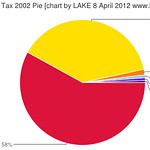Quite likely you thought massive prison populations used as cheap labor were some sort of medieval tradition. Nope. Here’s an article that debunks that misconception and informs you about many other things I (and perhaps you) didn’t know about prisoners as cheap labor.
Locking Down an American Workforce Steve Fraser and Joshua B. Freeman wrote for TomDispatch 19 April 2012, Prison Labor as the Past — and Future — of American “Free-Market” Capitalism,
Penal servitude now strikes us as a barbaric throwback to some long-lost moment that preceded the industrial revolution, but in that we’re wrong. From its first appearance in this country, it has been associated with modern capitalist industry and large-scale agriculture.
So where and when did it come from?
As it happens, penal servitude — the leasing out of prisoners to
 private enterprise, either within prison walls or in outside workshops, factories, and fields — was originally known as a “Yankee invention.”
private enterprise, either within prison walls or in outside workshops, factories, and fields — was originally known as a “Yankee invention.”
First used at Auburn prison in New York State in the 1820s, the system spread widely and quickly throughout the North, the Midwest, and later the West. It developed alongside state-run prison workshops that produced goods for the public sector and sometimes the open market.
A few Southern states also used it. Prisoners there, as elsewhere, however, were mainly white men, since slave masters, with a free hand to deal with the “infractions” of their chattel, had little need for prison. The Thirteenth Amendment abolishing slavery would, in fact, make an exception for penal servitude precisely because it had become the dominant form of punishment throughout the free states.
In case you’ve never read it or have forgotten, here is the Thirteenth Amendment (emphasis added):
Section 1. Neither slavery nor involuntary servitude, except as a punishment for crime whereof the party shall have been duly convicted, shall exist within the United States, or any place subject to their jurisdiction.
Section 2. Congress shall have power to enforce this article by appropriate legislation.
Got a population you don’t like?
Continue reading →
Feb. 25: Land Bank Authority Meets. Members of the Valdosta-Lowndes County Land Bank Authority will hold a meeting on Wednesday, Feb. 25, at 9 a.m., in the Neighborhood Development Conference Room (Room 202, Valdosta City Hall Annex). This meeting is being held to vote on the conversion of the Land Bank Authority. The Land Bank Authority exists to foster the public purpose of returning property which is in a non-revenue generating, non-tax producing status to effective utilization status in order to provide housing, new industry and jobs for citizens. For information, call (229) 671-3617.











